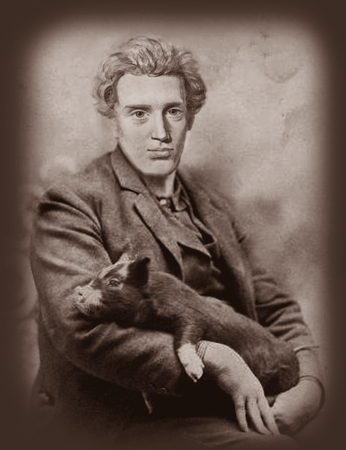Lüneburg, Germany is the site of a monument to a wild pig of long ago who sacrificed its life and unknowing lead its human hunters to discover the local salt deposits that became a source of great prosperity.
The legend of the Lüneburg salt pig, a Salzsauen or Salzsau in German, accords the wild pig an honored position as the source of the town’s wealth. A portion of the pig’s leg still hangs as a keepsake in a hexagonal glass display case in the town-hall at Lüneburg.

I am like a Lüneburg pig. My thinking is a passion. I can root up truffles excellently for other people, even if I get no pleasure out of them myself. I dig the problems out with my nose, but the only thing I can do with them is to throw them back over my head.
— Søren Kierkegaard, Danish existentialist philosopher writing in Either/Or (1843).
Additional information:
- Søren Kierkegaard – Stanford Encyclopedia of Philosophy
- Either/Or — A masterpiece of duality, and an exploration of the conflict between the aesthetic and the ethical – both meditating ironically and seductively upon Epicurean pleasures, and eloquently expounding the noble virtues of a morally upstanding life.
- The Pig That Wants to Be Eaten: 100 Experiments for the Armchair Philosopher by Julian Baggini
- Lüneburg, Germany
- “Passer-by, contemplate the mortal remains of the pig which aquired for itself imperishable glory by discovering the salt springs of Luneburg.”
